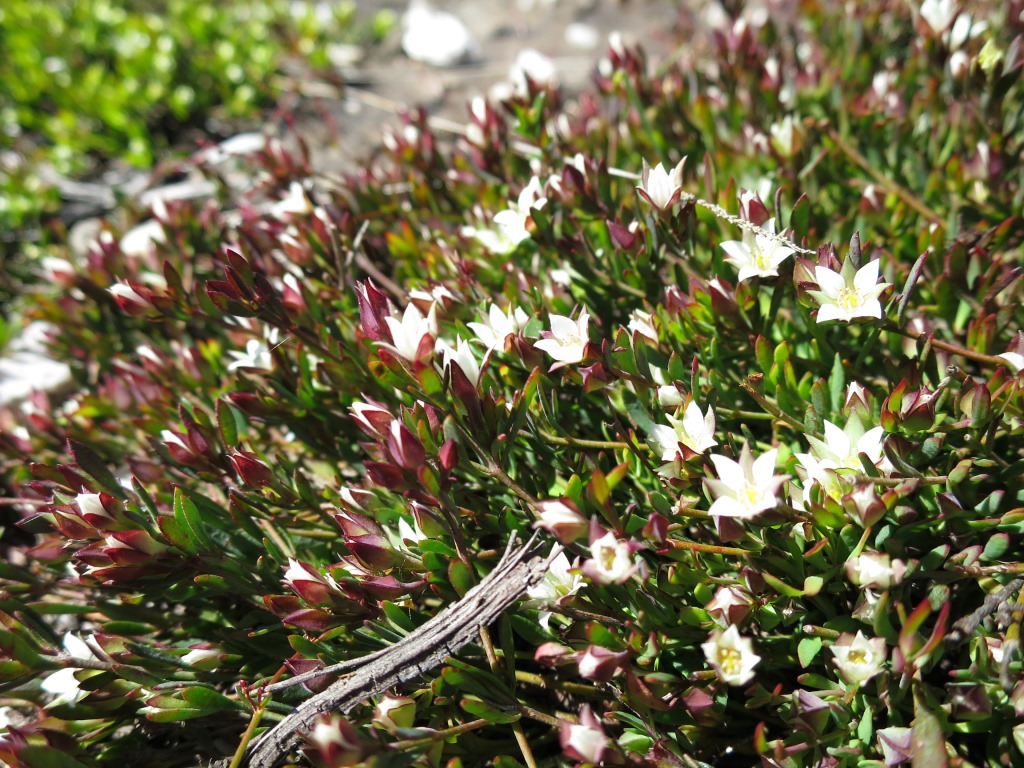Scientific Name: Boronia parviflora
Common Name: swamp boronia
Family Classification (Clade): Eudicots
Family: Rutaceae
Form Description: Small, weak shrub with elliptical leaves to 2 cm. May be prostrate, trailing.
Flowers: White or pale pink flowers axillary or terminal, crowded towards the tops of stems.
Fruit: Capsule
Municipality
Plant Communities
Habitat Notes
Widespread and abundant in wet heaths in Tasmania.
Site Tolerance
Moist, Shady, Waterlogged
Soil Tolerance
Clay, Fertile, Loam, Nutrient-poor, Poorly-drained, Sandy, Well-drained
General Notes
Susceptible to Phytophthora cinnamomi.
Propagation Calendar
-
Flowering Month
Jan Feb Mar Apr May Jun Jul Aug Sep Oct Nov Dec -
Seed Collecting Month
Jan Feb Mar Apr May Jun Jul Aug Sep Oct Nov Dec -
Sowing Month
Jan Feb Mar Apr May Jun Jul Aug Sep Oct Nov Dec -
Cutting Month
Jan Feb Mar Apr May Jun Jul Aug Sep Oct Nov Dec
Propagation Method
Seed Information
Seed Collection
Difficult to grow from seed. Collect seed in bag placed over ripening fruit and tie firmly around stem. Remove when seed has been shed into bag or spread sheeting on ground and hold in place with stones. Seed will fall naturally when mature.
Seed Treatment Method
Smoke Smoke treatment improves germination in some species. Smokey products, e.g. smokey vermiculite, can be purchased and applied to the sown seed, or sown seeds can be treated directly with smoke from a source such as a drum with a fire and hose.
Seed Treatment Notes
Can be sown directly into individual pots, not requiring pricking out. Cover with thin layer of dry twigs, leaves, straw or shredded paper; set alight and keep burning for about 5 mins; allow soil to cool, water well and place where plants receive only morning sun and protection from wind.
Cutting & Division Information
Propagate from cuttings. Subject to root rot.
